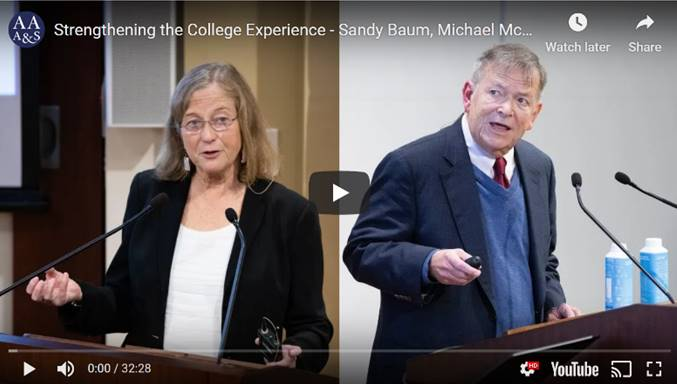
From Access to Success
For decades, higher education has focused on increasing access and affordability. But as noted economist Michael S. McPherson observes, “the nature of the problem has really changed.”
Ninety percent of high school graduates have tried some college by age 30. But only about a third of community college students achieve any kind of credential after six years. Over the same timeframe in baccalaureate institutions, about a third of students still don’t have any kind of degree.
“The problem is much more one of achieving success in college than of having initial access to it, and that’s where our energies need to be devoted,” including a focus on “the quality of undergraduate teaching.”
McPherson’s remarks were part of the American Academy of Arts & Sciences’ most recent Mandel Distinguished Lecture, which he delivered with Sandy Baum, nonresident fellow in the Center on Education Data and Policy at the Urban Institute. They shared highlights from the Fall 2019 edition of Daedalus, “Improving Teaching: Strengthening the College Learning Experience,” which they co-edited, and from the Academy’s Commission on the Future of Undergraduate Education, which McPherson co-chaired.
The Commission concluded that the question of quality has been neglected as compared to the focus on completion and affordability, and that “the quality of undergraduate teaching really must rise to meet the nation’s needs.” Such improvement, to be sustained, “will require support, engagement, and money from administrators,” as well as “leadership from the faculty.”
McPherson closed his remarks with a quote from physicist and teaching advocate Carl Weiman. Although it takes “takes time and effort” to improve one’s teaching, “once you’ve done it, teaching well is actually only a little bit harder than teaching badly, and it’s much more fun.”
ACUE was honored to work with McPherson last spring, in an independent review of our faculty and student impact research, and you can find his and Baum’s full remarks here.

